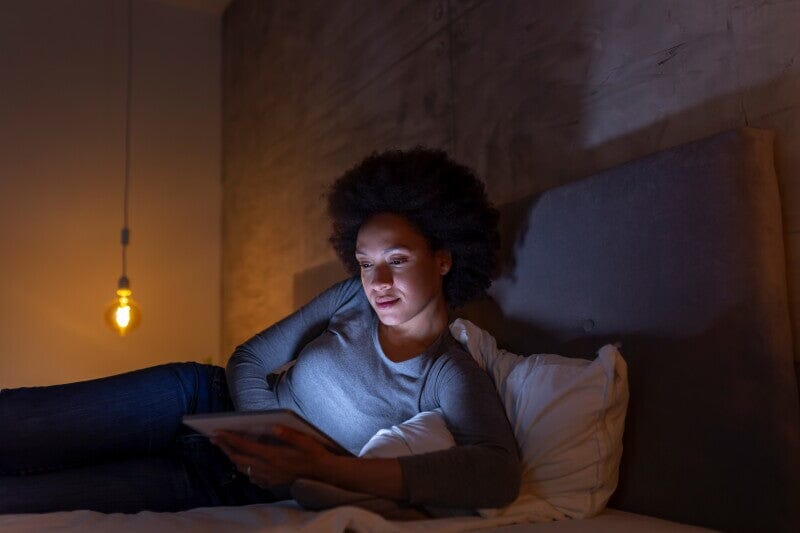How Reading Can Improve Your Sleep

Sleep problems have been on the rise in recent years. Many people report finding it challenging to fall or stay asleep. The cumulative effect of insomnia is tiredness, agitation, poor cognition and irritation. Insomnia also causes mood disorders, such as anxiety and depression, and physical conditions like high blood pressure.
According to a study called The Reading Trial, reading in bed enhances drowsiness and improves sleep quality. The research also emphasized the quality of randomized control trials in answering research questions.
What Is a Randomized Control Trial?
A randomized control trial study unsystematically assigns participants to an experimental or control group. The only expected difference in the study is the outcome of the issue under assessment. A randomized trial is the best way to determine the effect of a treatment.
Researchers can compare two interventions and analyze their efficiency without bias based on correspondent selection. Participants get chosen randomly into either category without knowing the trial's aim to keep the results pure.
The number of randomized trial participants also impacts the result's validity. A small number of correspondents hardly establishes accurate outcomes.
Why the Trial Results Are Accurate
The Reading Trial, a randomized trial, sought to establish the correlation between reading a book before bed and sleep quality. Researchers targeted the online community through social media campaigns to participate in the study. Participants were randomly divided into two groups. The group that read a book before bedtime became the intervention group, and those that went to bed without reading a book were the control group.
The study had 991 participants, with 496 in the intervention group and 495 in the control group. They only needed about 550 to meet the trial standards. Participants in the intervention group had to read for 15 to 30 minutes at bedtime for seven days. Another requirement was that participants had to sleep and wake up at the same time during the course of the study.
The intervention group also had to sleep in their bed, not at a hotel or a friend or loved one's house, and avoid caffeinated drinks one hour before bedtime. There was no restriction for using smart devices in bed. The control group did the same things as the intervention group apart from reading a book before bedtime. Furthermore, all participants were required to measure their sleep quality daily during the trial.
Researchers compiled, analyzed and drew conclusions from the data obtained from the study to show if there was any correlation between reading a book before bedtime and quality of sleep.
The results showed that 156 of 369 (42%) participants in the intervention group had significant sleep improvement when they read a book before hitting the sack. On the other hand, only 112 of 405 (28%) correspondents in the control group had healthy slumber without reading a book. Participant numbers diminished because not everyone completed the trial. The validity of the results remained intact because the trial had many correspondents. Ultimately, 773 people from 43 countries completed the trial.
Interpreting the Results
More than 14% of the participants experienced sleep improvement after reading a book before bedtime. It was determined that reading a book prior to sleep could increase sleepiness and improve sleep quality by up to 22%. There was little evidence that gender, age, trial knowledge or healthcare profession influenced the outcome. The study concluded reading a book has a positive impact on sleep.




